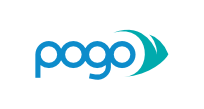The SINES cruise belongs to a multidisciplinary program for the study of Climate Change impacts on ocean fronts ecosystems. Funded by the European Commission through EUROFLEETS+, the SINES cruise is a study case for the Iberian Upwelling System. The cruise represents a proof of concept project to identify climate change impacts on ecosystem services of upwelling fronts.
The overall objective of this study is to identify the changes and risks for marine ecosystem services deriving from the potential impact of climate change on upwelling fronts. We will concentrate on the ecosystem variability of the Iberian margin Canary Current upwelling system through a holistic and integrative research approach, joining forefront remote technologies to in situ monitoring and numerical modelling. Our aim is to address ecosystem-societal interactions through the identification of the best quantifiable descriptors that are essential for sustainable management.
Our proposed multidisciplinary expedition will be carried out along a section located across the expected upwelling front between 37ºN 9ºW and 38ºN 12ºW in the western Iberian Margin. We will measure full-depth water column properties and collect seawater, live plankton and sediments samples in at least six stations from the shelf to the open ocean





